COVID Reaches Community Spread Phase in Wisconsin Counties
Dane, Milwaukee and Kenosha Counties all have community spread of the novel coronavirus, as the number of Wisconsin cases increases to 72. Gov. Tony Evers issued a statewide ban of gatherings of more than 10 people and closed schools "until further notice" amid concerns of the spread of the virus.
By Will Kenneally, Marisa Wojcik
March 17, 2020
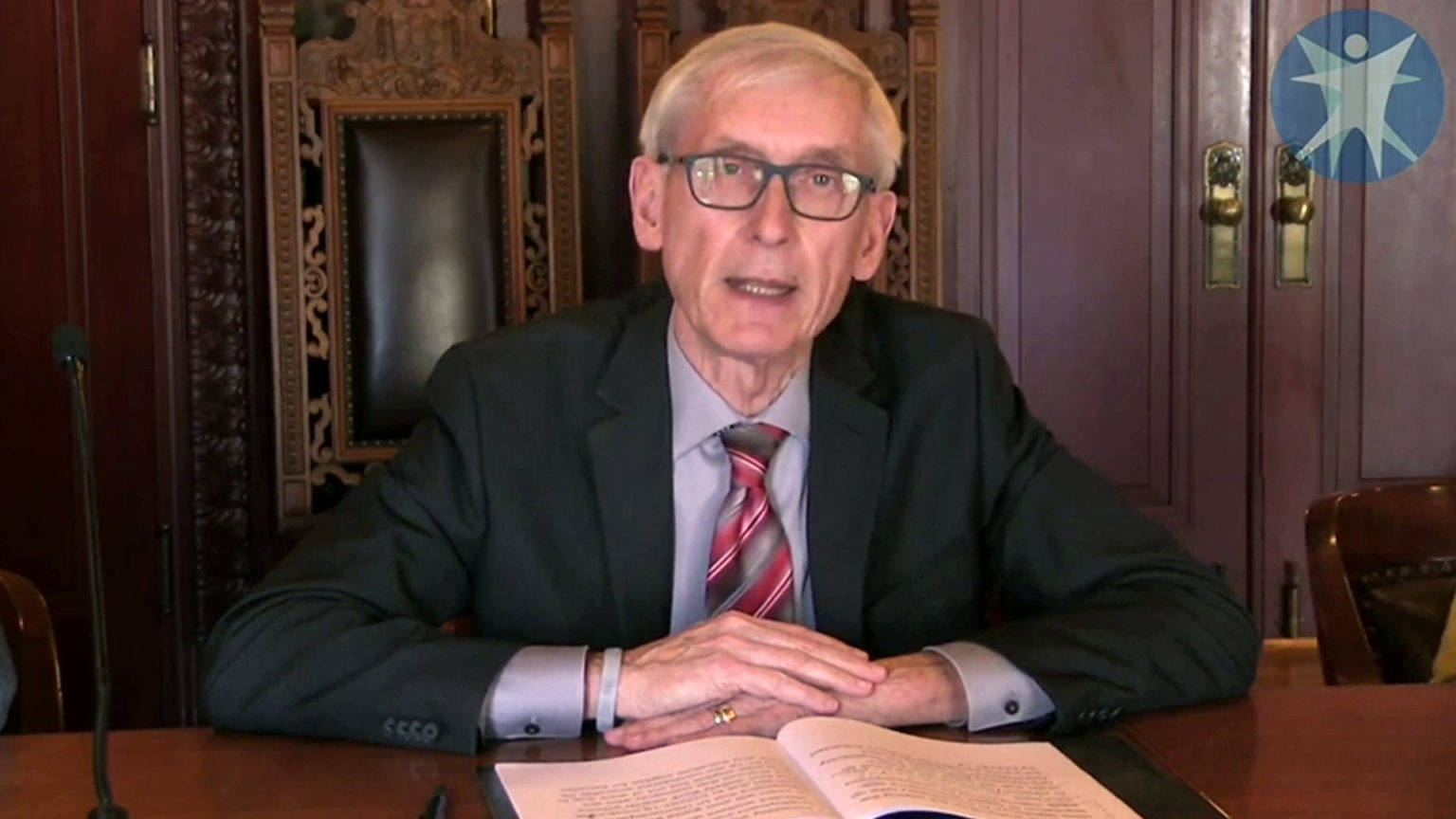
Gov. Tony Evers announces a ban on gatherings of more than 10 people March 17, 2020 amid concerns of the novel coronavirus spreading. (Courtesy: Dept. of Health Services)
Community spread of the novel coronavirus has started in Wisconsin as the number of confirmed COVID-19 cases increased to 72 with new numbers from the state Department of Health Services Tuesday.

New numbers from the Dept. of Health Serv. show community spread in three Wisconsin counties as of March 17, 2020.
Community spread of the disease is isolated so far in Dane, Milwaukee and Kenosha Counties, according to the DHS. Community spread means the virus has infected new patients who do not have a recent travel history to a COVID-prevalent area or have not been in close contact with a confirmed case.
The governor also directed DHS Sec.-designee Andrea Palm to ban public gatherings of 10 or more people, effective at 5 p.m. Tuesday. The order also closes all bars and requires restaurants to serve take-out orders only.
“As we discussed yesterday, we must protect and ensure the capacity of our healthcare system,” Palm said. “The steps we are taking today, prioritizing testing and enacting stronger social distancing are necessary steps to do this.”
The order excludes essential services, including transportation, childcare, hotels, military, law enforcement, food pantries, hospitals, long term care facilities, utilities, job centers and courts, according to the governor.
“What we’re saying here folks, is simply to just stay home if you can,” Gov. Tony Evers said. “We need our health care workers, our direct care workers, first responders, military and service workers to stay healthy so that they continue to keep us all safe.”
He also amended his school closing order to keep schools closed indefinitely. He said this would continue through the duration of the public health emergency.
DHS also announced today that Wisconsin is beyond capacity for testing for COVID-19. The Wisconsin State Laboratory of Hygiene has scaled up the number of samples to 400 tested per day, however, the number they are receiving “far exceeds their daily capacity,” DHS wrote in a press release.
The demand is causing health officials to prioritize testing for those who are hospitalized and/or critically ill and exhibiting symptoms of the virus, or those who are health care workers with unexplained fever and respiratory illness.
State health officials support drive-through testing sites, like ones being run by hospitals in the La Crosse area, however, they reiterated that not everyone needs a test.
“People only get tested if they develop symptoms,” State epidemiologist Ryan Westergaard said during a media briefing Tuesday with Evers.
Currently, four facilities in the state can test samples for the virus. Additional, large clinical labs will be up and running in the next one to two weeks. Tests that cannot be done within Wisconsin labs are being sent to other states and it will take longer for results to come in.
State health officials are working to coordinate capacity within hospitals as they expect a “surge” of cases. Evers and DHS described the new measures to close many public spaces and limit gatherings to fewer than 10 people would help prevent the spread of COVID-19 and “protect the healthcare system.”
Palm said health care providers will prioritize those most severely impacted by the disease. Health officials are still working to understand what the hospital bed capacity in the state looks like, where they are, and how health care providers will work together to coordinate that capacity.
Legislature to consider possible aid
At his briefing Tuesday, Evers said he would meet with legislative leaders Wednesday to consider taking up bills to provide aid to the state amid the public health emergency. He said he wanted the legislature to repeal the one week waiting period for unemployment compensation insurance, but he said other details on the legislative package would be worked out at the meeting.
In the interim, Evers said he would issue an order waiving work search requirements for unemployment insurance benefits for workers impacted by COVID-19.
“It’s incredibly important that the much needed unemployment insurance funds make it to affected workers quickly,” he said.
This comes the same day Senate Majority Leader Scott Fitzgerald announced that the final session day for the state Senate, originally scheduled for March, would be postponed. He said however, he would work with Assembly Speaker Robin Vos to call the legislature into an extraordinary session to deal with the public health emergency.
“This is out of an abundance of caution for Senators, their family members, and staff members who may be vulnerable to coronavirus,” Fitzgerald said in a statement.
Dane County responds to community spread
As the number of COVID-19 cases rose in the state, Dane County officials responded to the news that the virus entered a community spread phase.
“Given this level of spread, we are directing community members to practice social distancing and stay home as much as possible,” said Janel Heinrich, director of Public Health Madison & Dane County.
“We expect the number of people with COVID‐19 to continue to rise in Dane County,” she added.
Heinrich said the county was responding to the community spread by instituting orders banning large gatherings and enforcing those orders. She said Tuesday morning, before the governor’s announced 10-person ban, that was why the county had instituted a 50-person ban. She added that “it’s possible these orders will need to be amended to be more restrictive as the situation evolves.”
Heinrich said at a news conference over the weekend that local officials largely rely on the cooperation of residents to allow these social distancing measures to have their full effect.
Election
While states grapple with responses to COVID-19 outbreaks, many moved their presidential primaries to later dates. Evers said at Tuesday’s briefing that the complexity of Wisconsin’s April election makes it harder to reschedule.
“It’s not only a primary election for the presidential candidates, we have lots of other nonpartisan officials at the county level, at the state level, at the local level,” Evers said.
“Democracy has to continue,” Evers said. He added he did not want to leave local offices vacant while the spring general election was postponed.
Green Bay Mayor Eric Genrich said in the wake of Evers briefing he has concerns about the April election.
“Speaking for Green Bay, we will be unable to administer a normal election,” he said. “The Governor and legislature need to act fast to allow us to have the election in a safe and responsible way: through the mail.”
 Passport
Passport




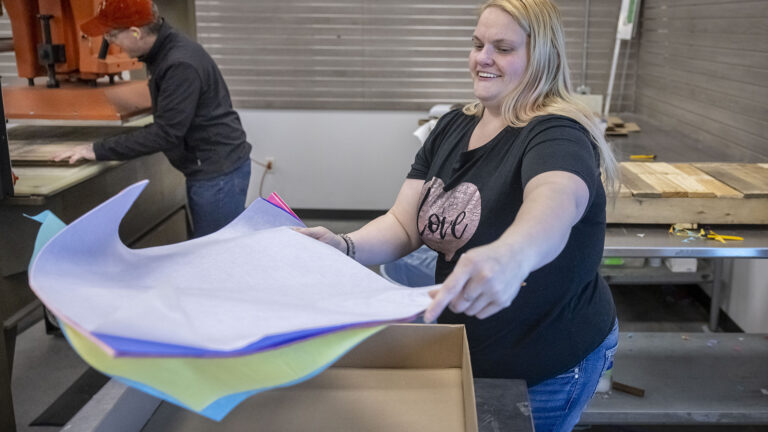
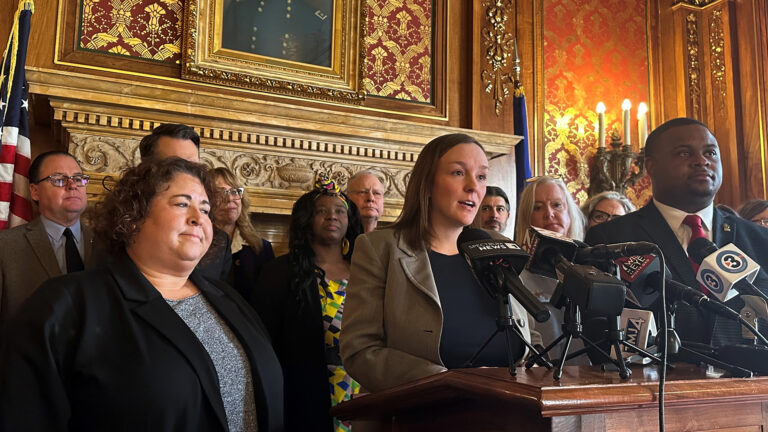
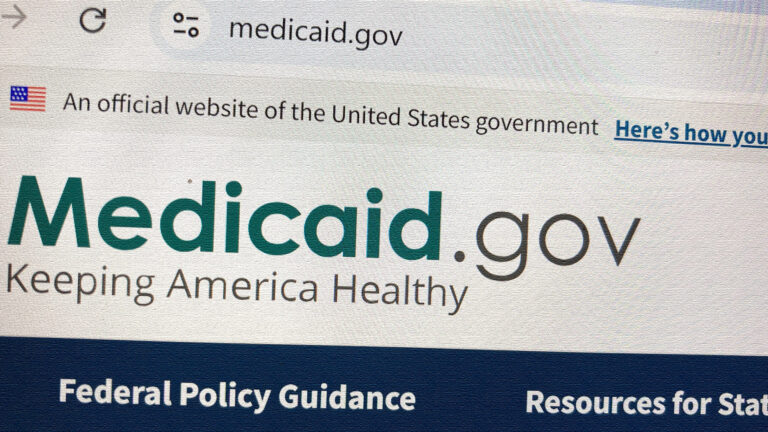
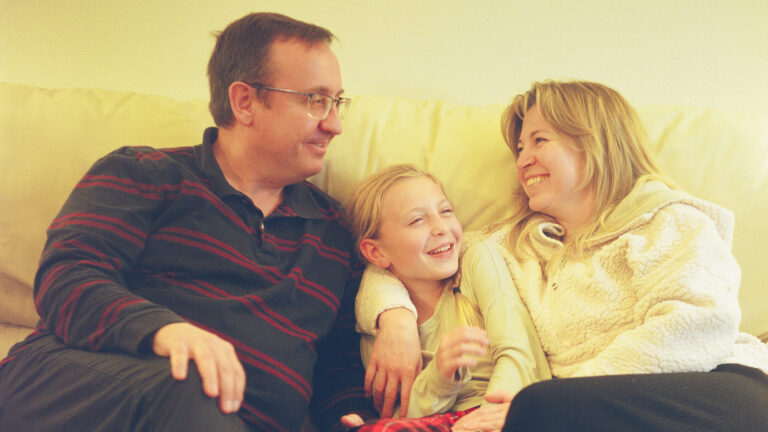
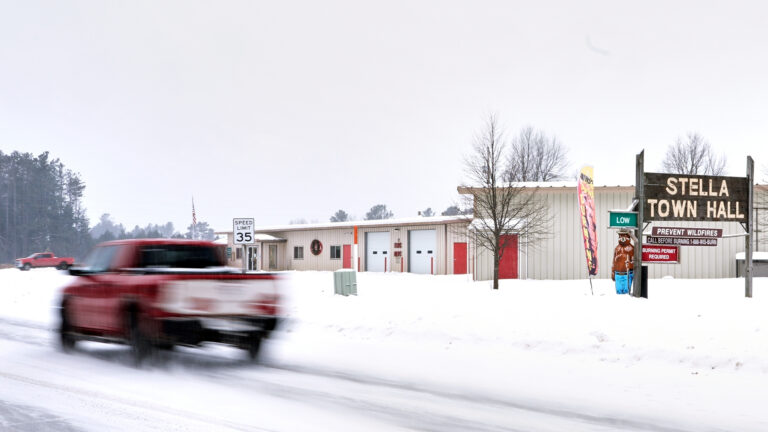
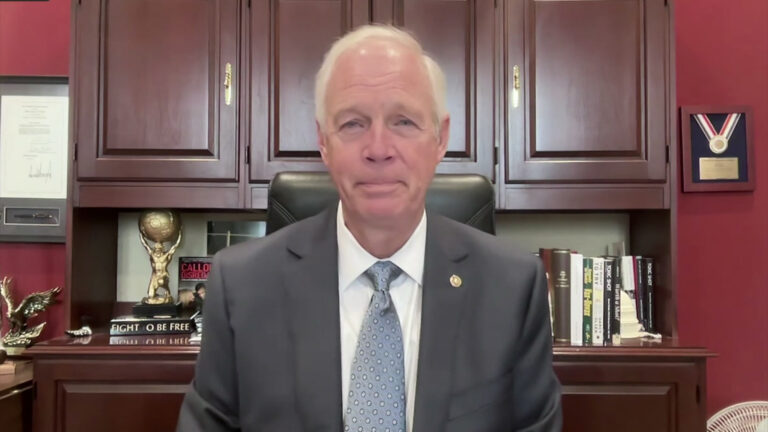

Follow Us